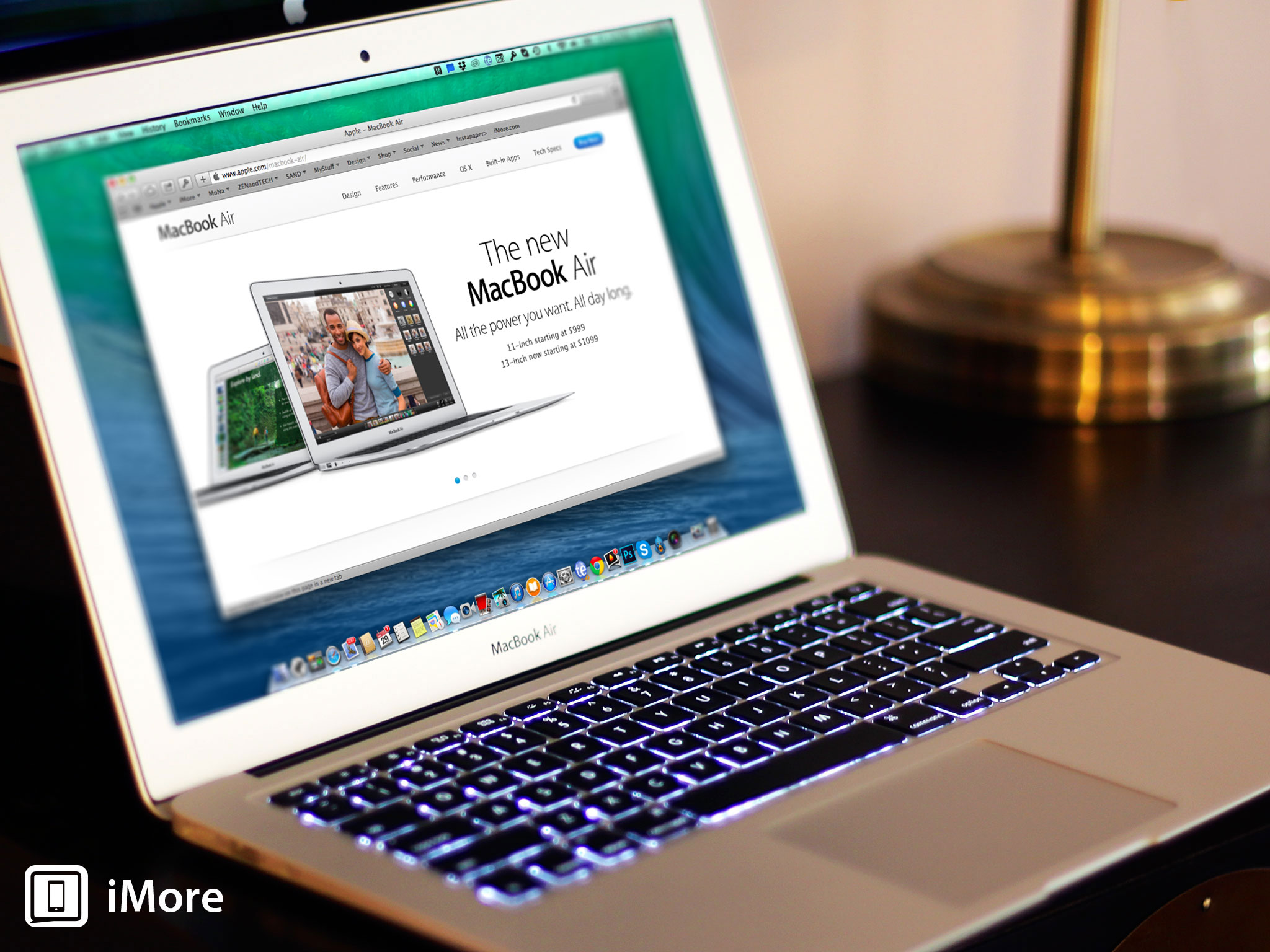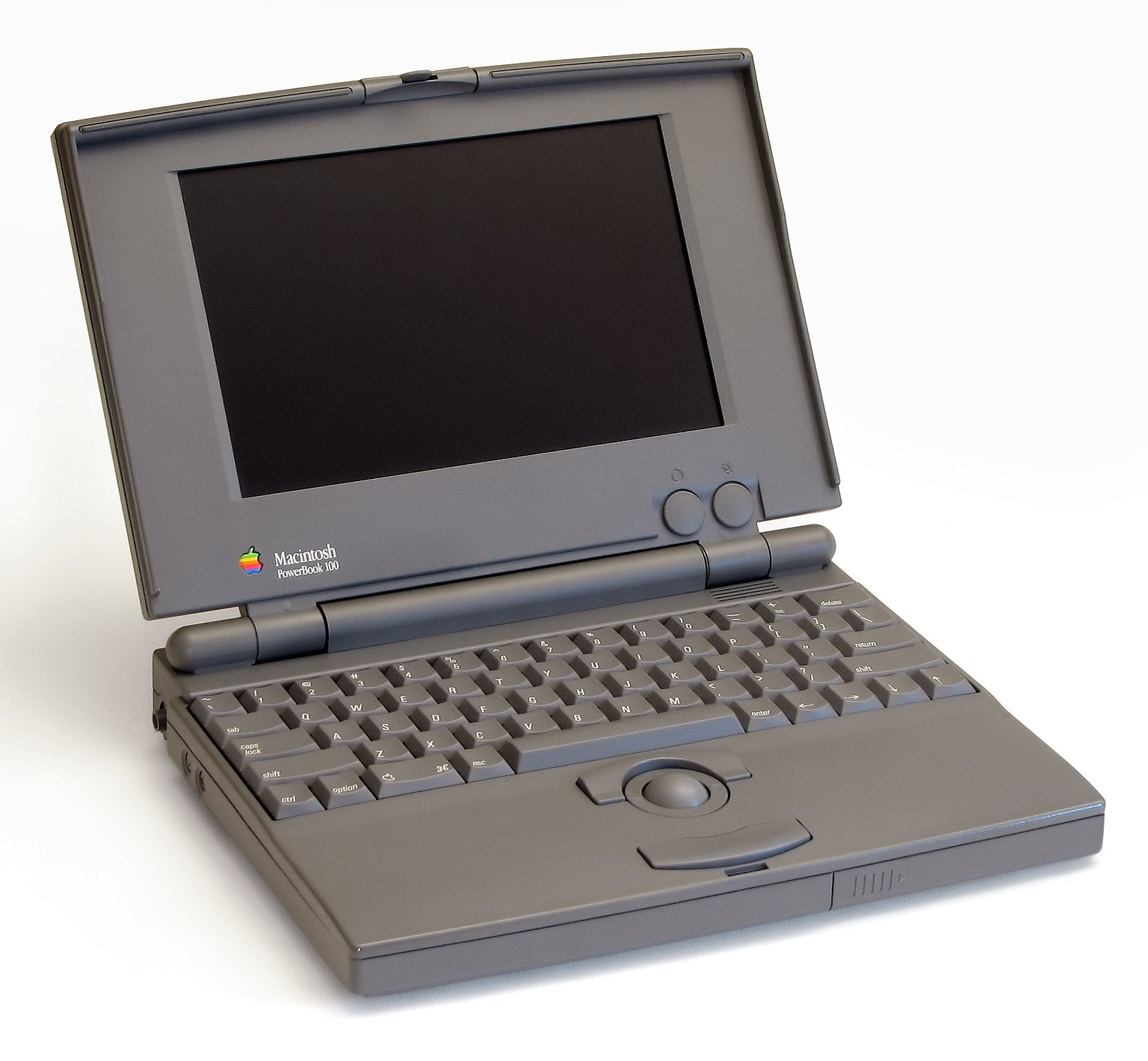Sony to exit the PC business: What's it mean for the Mac?

Sony is getting out of the PC business. What does that say about the future of the Macintosh?
Sony announced Thursday that it will sell off its VAIO computer business to a Japanese investment fund. Sony cited "the drastic changes in the global PC industry" as one reason for its decision. Apple hasn't been immune to the global dropoff in PC sales either. Is Sony's decision a harbinger of what's to come for the Mac?
Mutual admiration society
The relationship between Sony and Apple runs deep. Sony founder Akio Morita and Steve Jobs liked and respected each other a great deal, but Sony's relationship with Apple was independent of Jobs, too. Let's rewind the clock back to the late 1980s.
Apple's first attempt at a portable computer couldn't be considered a laptop by any reasonable definition, unless you were Andre The Giant. The Macintosh Portable weighed 16 pounds and was over a foot wide and a foot deep. Released in 1989, the Macintosh Portable didn't sell particularly well - it had the processing power of a Macintosh SE, which was already long in the tooth, and at $6,500 was hideously expensive, too.
Apple wasn't ready to give up on the concept, however. So back to the drawing boards they went. Apple's Industrial Design Group started with a fresh sheet of paper. On a tight deadline and with fairly little in the way of engineering resources, they brought in a collaborator: Sony.
Sony had little experience making personal computers but was an expert in consumer electronics and circuit miniaturization. The company made a huge splash in the 1980s with its Walkman portable cassette player, parlaying that into the equally ubiquitous Discman portable CD player, and had a huge home entertainment business besides.
Sony/Apple collaboration yields fruit

The result of that effort was the PowerBook 100, released in 1991. While it offered comparable processing power to the cyclopean Macintosh Portable, it did so at less than one-third the weight and with a much, much smaller footprint. The PowerBook 100 was the MacBook Air of its day: a subnotebook that eschewed an internal floppy drive to help shave off some space and cost (an external model was available).
At the time of the first PowerBooks' release, I was working as the system administrator for a graphic design firm outside of Boston. We got a couple of them to use around the office, for brainstorming sessions and so the partners could work from home if they needed to. The PowerBook 100 became a favorite because of its light weight, maximum portability and relative affordability compared to the other PowerBook models.
Master your iPhone in minutes
iMore offers spot-on advice and guidance from our team of experts, with decades of Apple device experience to lean on. Learn more with iMore!
The PowerBook 100 wasn't Apple's best-selling first-generation PowerBook, but it helped contribute to $1 billion in Apple laptop sales that first year, and helped the company establish a foothold in the burgeoning laptop computer market that would serve them quite well in the ensuing decades. It also gave a good indication of how Sony would proceed with its own PC business years later, when it launched the VAIO line in 1996.
Sony's VAIO computers started out as desktop machines, but Sony would introduce sleek, well-engineered laptops a year later. The company developed magnesium housings, integrated webcams and shrunk their laptops to pocket size; they consistently produced really beautifully-designed and engineered laptops that kept them separated from the pack of poorly differentiated me-too PC designs.
Yesterday we reported on a story making its rounds on the Internet that Steve Jobs presented Sony executives with a Sony VAIO laptop running OS X in 2001, years before Apple would switch to Intel CPUs.
According to the original report, Jobs was a fan of Sony's VAIO designs and had hoped to interest Sony in selling OS X-compatible laptops, but it wasn't to happen. Apple, of course, went its own way, introducing PowerBook G4 aluminum systems and eventually the MacBook Pro line. It's hard to imagine in retrospect that Sony designs like the X505 - a system that came out years prior - didn't at least inform Apple's design for the MacBook Air.
Mac sales remain strong
Sony's had a tough time of late. The company recently announced plans to lay off 5,000 employees by the end of March of next year as part of a global restructuring. Last year Sony announced 10,000 job cuts. Sony is cutting loose the VAIO line all together, but it's also spinning off its money-losing Bravia TV operations as a wholly-owned subsidiary. Its PlayStation 4 is one of the few bright spots on Sony's balance sheet these days.
Over the years, Sony has simply spread itself too thin, dabbling in various businesses without much success, but unfocused on core strengths. Just look at the way Sony - inventor of the Walkman - was an absolutely non-presence in the digital music market (while Apple dominated with the iPod).
Meanwhile, Apple continues to make money on its computer systems that are the envy of the PC market. The Mac isn't in any danger of getting discontinued today or tomorrow. It continues to sell well, outpacing PC market sales for most of the last decade. Also, iOS is Apple's bread and butter, and at least for now, you need a Macintosh if you want to develop and deploy your app for iOS.
But PC sales have seen a sharp decline since the advent of the iPad in 2010 and the corresponding rise in Android tablets; fewer and fewer consumers are buying PCs, and corporate buyers are finding uses for tablets too. Apple's less concerned about that market cannibalization as long as it's in favor of the iPad - a sale is a sale.
Sony isn't the only company pulling up stakes in the PC market. LG is also reportedly planning to axe its PC business. One of Apple's biggest PC competitors, Dell, is undergoing a major restructuring that's cutting more than 15,000 jobs. Founder Michael Dell, who bought out his eponymous company and took it private again last year, seeks to remold the company into an enterprise and cloud services business.
Ultimately, Sony's departure is unfortunate simply because they were one of the few PC makers to produce a device that looked as cool as a MacBook. But in a business driven by commodity pricing, looking cool and pricing high is a bad combination. Apple's been able to ameliorate that problem by differentiating its own computers with better value, distinction from PC problems like malware and "crapware," and the "halo effect" of consumers buying other Apple devices and being interested in a Mac when it's time to replace their computer. But the fact remains that blood continues to flow freely in the PC business, and it isn't over yet.
I'm confident that the Mac will ride out the storm. In the interim, I hope that someone will fill the vacuum that Sony leaves behind with a PC laptop with some style. We'll see.
How about you? Have you ever owned a Sony laptop? Did you admire their industrial design like I did? Let me know what you think in the comments.

